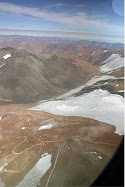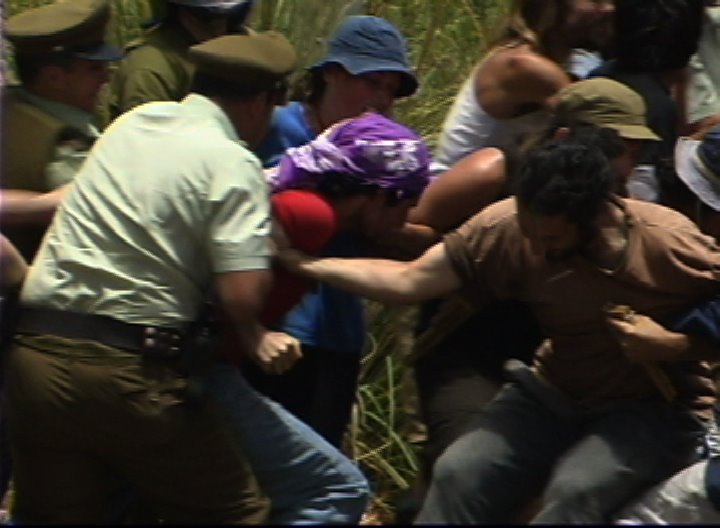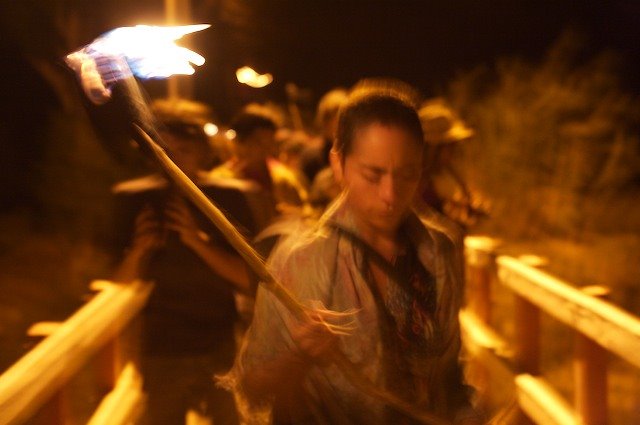In San Juan, and during three days, brought together organizations and assemblies throughout the country to resist mining Pastera, agribusiness and urban environmental pollution. Require the repeal of laws passed in the 90s and defending the commons.
By Dario Aranda
"Mining large-scale agribusiness and Pastera are part of a single sample extraction and pollution, spurred by businesses and governments, which favors business over the environment and health of the people." It is certain that the guide to Union Assembly Ciudadanas (UAC), formed by hundreds of communities across the country gathered for three days in San Juan, an emblem of the provinces of mining activity. "The ACU-as they are known in space, are a militant and self assembly, made up of organizations that are the first trench against pollution: people threatened by the advance mining communities (rural and urban areas) suffered by spraying, organizations and families victimized by urban industrial pollution. In its ninth national meeting, confirmed the rejection of polluting enterprises, agreed actions (roadblocks, demonstrations and escraches), denounced the veto on the law protecting the glaciers and warned the increasing criminalization of protest. "Against the plunder and pollution," the sentence was re-united to the meeting.
San Juan has five mining projects: three in the study, one in full production since 2005 (Veladero, the Canadian leader in the industry, Barrick Gold) and another about to be built: Pascua Lama (also of Barrick), reported by promoters and detractors as the most ambitious mining project in America, will be the largest, will use 17 trucks with cyanide per month, 370 liters of water per second in a semi-truck of explosives and 200 per month. Pascua Lama will be the first site in the border region of Argentina and Chilean governments created in the last decade, a law that allows a mine-free zone, to kick a dozen companies operating mountains along the 5000 kilometers of mountains .
The interests at stake, it was not surprising that the capital San Juan dawn on Friday, day of the forum with the UAC pasacalles defending questionable activity. "Yes to work. Yes to development. Yes to mining, "the Chicano was used by the Government and the business sector. One child in front of the police, who made surprise checkpoints on routes entering the city, where buses took participants to the meeting. The organizers also denounced a boycott of one sector of the provincial media, which refused to cover an event. According to the UAC, it was a request from the Government (more advertisers). They also recalled that were clogged all posters announcing the meeting.
The forum consisted of work in committees, put together and the whole building. Each committee consisted of twenty people, covering four main areas: mining, urban conflicts, legal and pesticides. And there were two themes throughout the meeting: water and education. Involving 480 people from 40 villages throughout the country. The agreements include: a bi-national action by Pascua Lama for early June (participating organizations of both countries), a massive march in Buenos Aires, actions throughout the country in protest to the criminalization of protest, support for the creation of the International Criminal Court and Environment decided to launch criminal proceedings against company directors and officers. It also highlighted the need to unify and nationalize the fight without losing sight of regional and local resistance, with direct action (blockage of roads, walks, escraches). Throughout the meeting also reported business strategies through education. Appellants were co testimony on universities by firms pursuing teaching critical care in schools (from mining) and textbooks in favor extractive activities.
The UAC require from their first encounters, the repeal of mining laws, passed during the Menem and sustained until the present. The companies always recognized the benefits of the legislation. First, use strictly the Argentine Mining Code, by which the State (national, provincial or municipal) is prohibited from exploiting any site alone. Mining companies have no withholding tax on exports, foreign exchange should not settle (do not enter the money from their sales to the country, everything goes to the outside), do not pay fuel taxes (which we all pay when loading naphtha), and fees for import and enjoyed 30 years of fiscal stability. "There is a legal structure that ensures the companies take everything and leave only pollution, destruction and looting," explained San Juan.
The UAC also confirmed the rejection of the mega-rich water mining, the town of Catamarca Andalgalá, home for a decade of Bajo La Alumbrera deposit, with a dozen complaints about pollution and its executive vice president tried to affect the environment. Catamarca organizations recalled the suspect action by the provincial government, which adopted a very challenged Environmental Impact Report, which gave way to free enterprise.
The veto of the law of glaciers (by the President on November 10 last) was one of the recurring themes. "The veto of Barrick Gold," was called by the UAC, which yesterday, in plenary, adopted a strong awareness campaign on water reservoirs. On April 14 last, Peter Munk, founder of Barrick, was received at Government House by Cristina Fernandez de Kirchner and the governor of San Juan, José Luis Gioja. The photo shows the smiling officer. The UAC recalled that same day, in the town of Rioja Famatina (where Barrick Gold plans to exploit an oil field), women of the Assemblies Ciudadanas Riojanos were suppressed by not allowing the passage of the company. The authors of the aggression-were filmed and photographed, provincial officials and employees of Barrick Gold. "Water is worth more than gold," recalled the delegation riojana.
The next meeting will take place in Libertador General San Martín (Jujuy), home of the company questioned Ledesma, 24 to July 26 and added two crucial lines in the fight against extractive model: land and people.
Monday, April 27, 2009
Subscribe to:
Post Comments (Atom)





1 comment:
Hello, I do think your website might be having web browser compatibility issues.
When I look at your blog in Safari, it looks fine but when opening in I.
E., it's got some overlapping issues. I simply wanted to provide you with a quick heads up! Other than that, excellent site!
Stop by my web site ヴィトン
Post a Comment